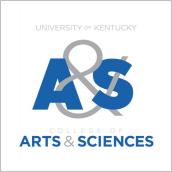by Sarah Geegan
 Though the fall 2012 semester is already underway, the College of Arts and Sciences is still offering courses for students interested in earning additional credits this semester.
Though the fall 2012 semester is already underway, the College of Arts and Sciences is still offering courses for students interested in earning additional credits this semester.
Mid-semester courses, beginning in October, will progress until December and cover topics ranging from history and literature to science and research, as well as a merging of both arts and sciences.
As a component of the College of Arts and Sciences' Passport to the World Initiative, "Reimagining Russia's Realms," professors Cynthia Ruder from the Department of Modern and Classical Languages, Literatures and Cultures, and Janet Stamatel from the Department of Sociology will lead a two-credit-hour course titled "Crime and Punishment in Russia’s Realms," A&S 100-401.
This course will examine issues of crime and punishment from literary, social science and creative perspectives in Russia and surrounding countries, from the 1920s to the present. Utilizing film studies and analysis of contemporary literature, the course will also include several guest speakers with expertise in different types of crime including homicide, organized crime and human trafficking.
"Students have lots of preconceived notions about Russia," Stamatel said. "So when we say 'Russia and crime,' they think immediately of organized crime and things they hear about in films or on TV, so being able to get them to fully appreciate some of the science behind that is exciting."
This course begins Oct. 1, but is still open for enrollment.
Another 2-credit-hour course that merges science components with humanities elements is offered by Rita Basuray and titled, "A&S 100-024: The Science Behind What We Drink."
The course revolves around six beverages that monumentally shaped human history — water, beer, wine, spirits, coffee, tea and cola, through the book titled “A History of the World in 6 Glasses.” Taking a scientific approach on a history-based text, the course centers the physiology of human intake and excretion of water as well as the other beverages' effects on the human body.
"Following the book, we will explore these six different beverages, and their influence on six pivotal points in history," Basuray said. "The text describes these different beverages in detail — water influenced early settlements, which centered upon human proximity to rivers and other bodies of water; coffee is associated with the age of enlightenment and reason; tea played a key role in the rise of industry; and Coca-Cola is a symbol for globalization."
Basuray, whose background lies in human physiology, will simultaneously discuss human physiology and components of the beverages as well. For example students will learn how caffeine and alcohol affect different parts of the body.
"The goal here is to truly merge the arts and the sciences," Basuray said. "We will use interactive techniques to explore the topics through several different perspectives."
Basuray will use these interactive techniques for her other mid-semester course as well. While the beverage course stems from a more historical perspective and expands to science, her other course does the opposite, focusing on "HeLa" cells removed from a cervical cancer patient in the 1950s and using that perspective to examine societal factors and the development of research ethics in the United States.
The course, "A&S 100-023: Cell Biology, Society and Research Ethics," focuses upon Henrietta Lacks, and how the first human immortal cell line was created from her cells. Through that perspective, the students will explore topics ranging from reproduction, cancer and cell biology, to research ethics and social influences on research.
"We will use team-based learning methods and students will work in small teams to incorporate films, research studies and archives from the King Library, as well as interactive components such as role playing and letter-writing," Basuray said.
Basuray said that the interactive nature of these classes allows the students to use their creativity and to make lasting friendships with their classmates.
"It also allows me to learn as much from the students, which is wonderful," Basuray said. "I will teach students human physiology, while they will expand my understanding of the arts through research and reports on different humanities topics."
This course is also worth two credit hours. Both of Basuray's courses begin Oct. 15.
Interested students should contact their academic advisers for more information on the courses, or to enroll. Courses are open to all majors.
To listen to a podcast, produced by the College of Arts and Sciences, in which Basuray discusses "A&S 100-024: The Science Behind What We Drink," click here.
To listen to a podcast, produced by the College of Arts and Sciences, in which Ruder and Stamatel click here.
The Passport to the World initiative is sponsored by the A&S Advisory Board.
